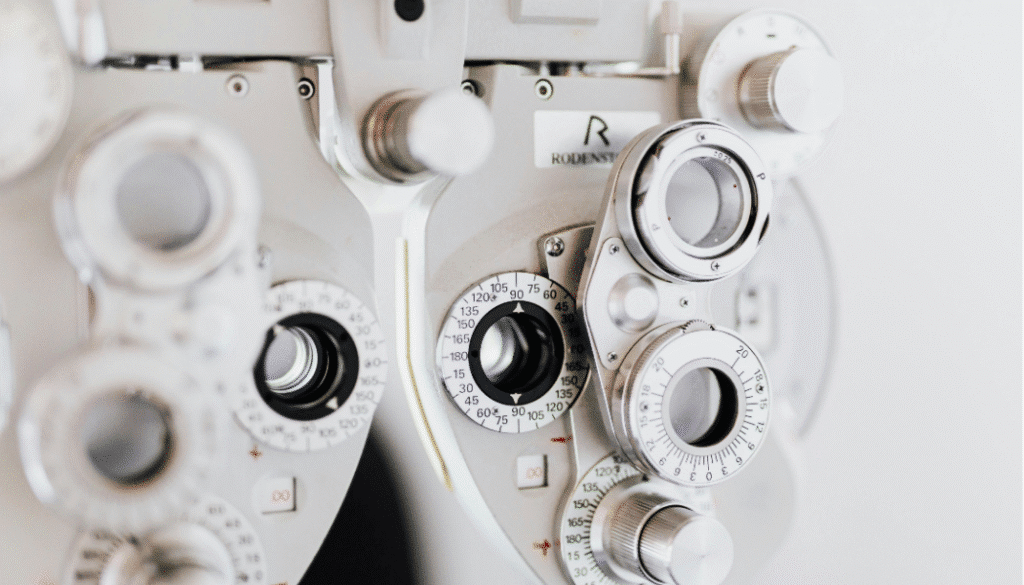
Contact lenses are a good alternative to glasses. Not every patient wears them every day. Some only wear them for sports, weekends, or special events. That flexibility is one of the main benefits of contacts. They can fit into almost any lifestyle.
If you choose contact lenses, a proper fit is important. Safety and hygiene also matter. A contact lens exam includes a full eye health check, a glasses prescription, and a separate fitting appointment for the right contacts.
Regular eye exams for contact lenses protect your eye health. Even if you see well, checks are important. A comprehensive exam looks at your vision and overall eye health.
This exam gives a prescription for glasses, but that is not enough for contacts. Contacts need more vision tests for contacts. These tests check if your eyes can handle lenses safely. They also help the doctor find problems that could affect comfort.
During an optometrist consultation, your doctor will ask about your lifestyle and vision needs. These details help guide lens options.
Choices may include daily disposables, monthly lenses, or gas permeable designs. If you have astigmatism or dry eye, specific lenses may be suggested. If you are over 40 and need help with near vision, bifocal, multifocal, or monovision contacts may be discussed.
You can also ask about colored lenses if you want them. This is the best time to share any preferences.
No single lens works for everyone. Lenses must be measured and fitted. Poor fit can cause irritation, blur, or damage. Eye doctor fittings prevent these problems.
Your doctor will check:
Next, a lens trial session is done. You wear test lenses for 15–20 minutes. The doctor checks comfort, movement, and moisture balance.
If the lenses fit, your prescription are finalized. Your doctor explains safe use, wear time, and cleaning steps. Prescription renewals depend on your eye health and follow-up visits.
A follow-up visit is often needed. This ensures your lenses still fit well and your eyes stay healthy.
If you feel dryness or pain, see your doctor quickly. The lens type, cleaning solution, or wearing time may need to change. Most patients also need annual Eye Exams for Contact Lenses to confirm safe long-term lens wear.
Yes. A contact exam is separate and includes special steps for fitting.
Costs vary, but they are usually higher than exams for glasses only.
Most people need a yearly eye exams for contact lenses to keep eyes safe.
Yes. A contact exam includes fitting appointments and test lenses, while a regular exam does not.
Looking for expert eye care, glasses, or vision therapy? Fill out the form and our team will get back to you quickly to schedule your appointment.
Give us a call to schedule your next appointment